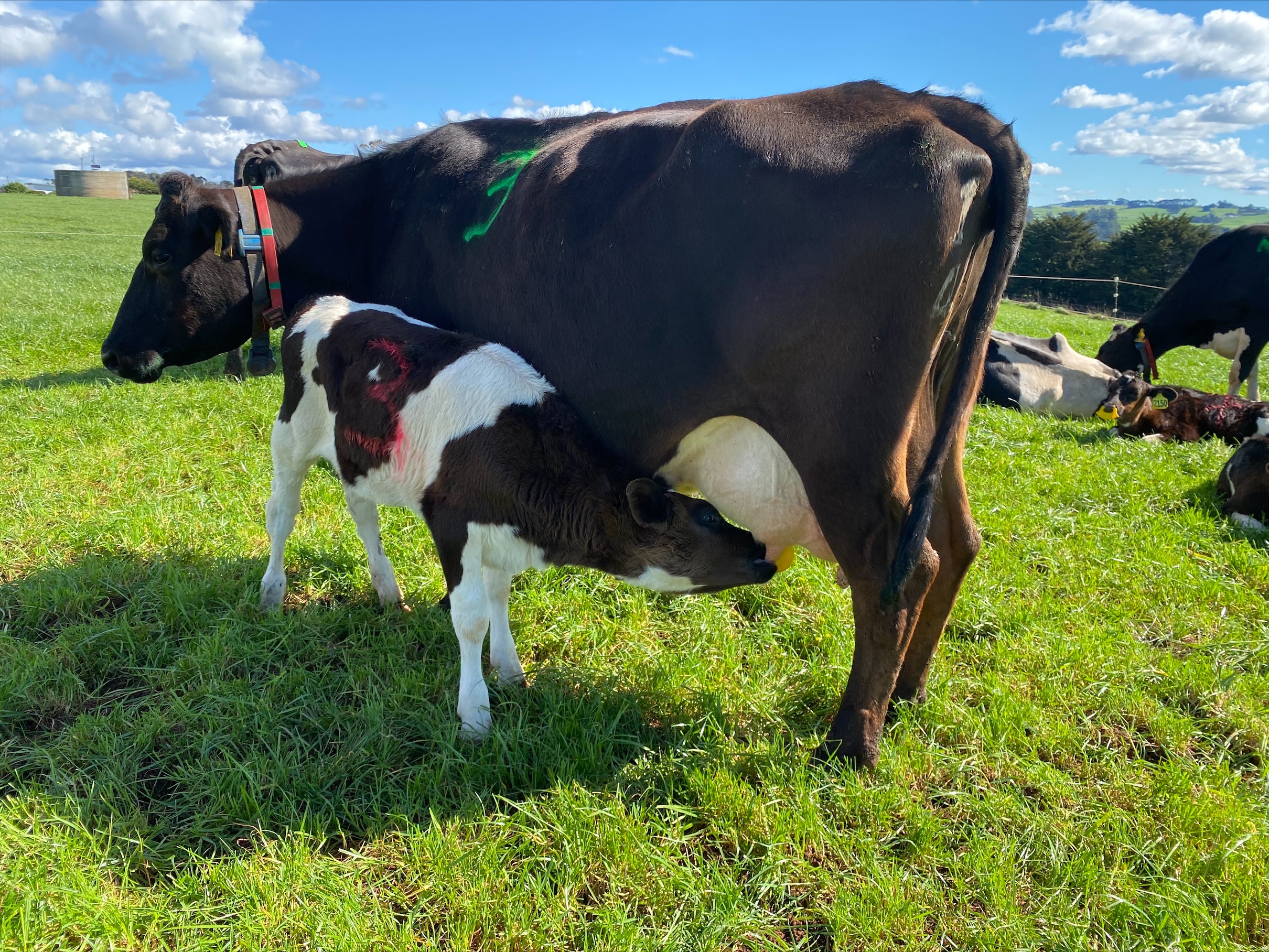
Tasmania can be a global leader in dairy welfare and sustainability.
A paddock of cows with suckling calves is not something that is commonly seen on dairy farms, but a world-first research project is exploring the potential for this to become a viable option for calf rearing.
The Tasmanian Institute of Agriculture’s Dairy Research Facility (TDRF) at Elliott, in North-West Tasmania, is the site of a commercially risky trial to explore the potential for a dairy production system where cows rear their own calves and are milked once a day.
The conventional practice on commercial dairy farms is to separate calves from their dams (mothers) within 24 hours of birth. Calves are reared in purpose-built sheds where they are protected from the weather and fed a controlled volume of milk solids before eventually joining the dairy herd as an adult. This early separation is thought to create less stress than later weaning and allows for close monitoring and control of calf health. However, research indicates the early calf environment can impact the resilience and future productivity of heifers, and there could be multiple benefits to keeping calves and dams together for longer.
Dr Megan Verdon is a Senior Research Fellow leading the project. She has an interest in the development of livestock systems that achieve continual improvement in animal welfare and productivity while also responding to consumer expectations regarding how production animals are managed.
Dr Verdon said the separation of calves from their dams is an issue that is attracting public interest here in Australia and around the world. She is exploring opportunities for alternate calf raising management strategies that align with changing consumer expectations of animal welfare and are commercially viable.
In 2021, a team of TIA researchers including Dr Verdon, Tom Snare, and PhD candidate Sandra Ospina developed a novel cow-calf rearing system for pasture-based dairies based on once-a-day milking and half-day contact between cow and calf. The trial was undertaken at the TDRF and proved that the system is practically feasible and could offer positive outcomes for animal welfare and productivity.
Their results suggest that calves raised by their dams grow more quickly are more stress-resilient, have improved cognitive functions, are better able to adapt to a pasture-based system, and have better social skills when they enter the herd.
Dr Verdon recognises that the research is a “bit out there” and is not something that is ready to be incorporated into a large-scale commercial dairy farm just yet. She is looking to the future and urges dairy farmers to consider how they want their farms to operate in 10 to 20 years so that research can be undertaken now to help achieve that vision.
Want to know more? Check out the full article here!
